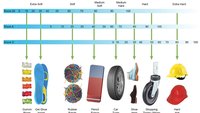Sweden Becomes First Western Nation to Reject Low-fat Diet Dogma in Favor of Low-carb High-fat Nutrition
Hmmmm … I looked at the google translation of SBU Report no: 218 from Swedish (which is a bit garbled and limited), but nowhere does it recommend high-fat/low carb as nutritional guidelines. Their recommendations are specifically for obese people who are on weight reduction plans, not recommendations for the general public.
Take a look
The summary:
http://translate.google.com/translate?hl=en[HTML_REMOVED]sl=sv[HTML_REMOVED]tl=en[HTML_REMOVED]u=http%3A%2F%2Fwww.sbu.se%2Fsv%2FPublicerat%2FGul%2FMat-vid-fetma-%2F
The press release
http://translate.google.com/translate?hl=en[HTML_REMOVED]sl=sv[HTML_REMOVED]tl=en[HTML_REMOVED]u=http%3A%2F%2Fwww.sbu.se%2Fsv%2FPublicerat%2FGul%2FMat-vid-fetma-%2F
It states
"Several tips on changing eating habits can lead to weight reduction in people with obesity. So it is good with a wide variety of dietary guidelines. In the short term, six months, giving advice on low-carb diet more effective than low-fat diets. Long-term no noticeable differences between the various dietary guidelines. "
So if an obese person wants to lose more weight in six months, they should reduce their carb intake rather than their fat intake. Remember - this is for an obese person, not a healthy-weight person. Not an overweight person. It says there is no difference between the 2 diets in the long term - ie post 6 months carb reduction works just as well as fat reduction. Presumably cutting down on both fats and carbs would work even better? No? Do I get a Nobel Prize for that?
The report also explicitly states "The purpose of this report was to systematically compile the scientific literature for advice on food to, or actually food intake in people with obesity … SBU has not reviewed studies related to dietary advice to normal or overweight individuals or to the whole population."
If you are obese, feel free to follow their guidelines … it may help you. Normal and overweight adults, maybe not so much.
The ironic part is that if you google "sweden dietary advice" you find tons of articles from diet and health sites pedalling some product or idea or other talking about how Swedish experts are recommending low carb, high-fat diets as a national health strategy, and the odd peer-reviewed scientific research paper like this one from the British Medical Journal
http://www.ncbi.nlm.nih.gov/pubmed/22735105
with
"CONCLUSIONS: Low carbohydrate-high protein diets, used on a regular basis and without consideration of the nature of carbohydrates or the source of proteins, are associated with increased risk of cardiovascular disease."
Just sayin' ….








